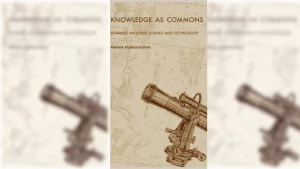The Just Net Coalition (JNC) comprises several dozen civil society organisations and individuals
from different regions globally, concerned with issues of Internet governance, from the perspective
of all human rights, including democracy and economic and social justice.
States that vehemently call for a multi-stakeholder approach to issues regarding Internet governance are now calling for pure intergovernmental negotiations for those issues After nullifying all efforts to develop globally democratic mechanisms for governance of the Internet, some dominant interest attempted in 2014, through the Net Mundial Initiative, to make the World Economic Forum (WEF) the anchor for global Internet Governance. That attempt failed due to certain rivalry among and within governments, global business associations, and resistance from the Internet technical community, in addition to outspoken opposition by many civil society groups.
Another attempt is now being made at the WEF to frame governance of the digital society/economy. This takes the form of the planned announcement at the Davos meeting in January 2019 of a pluri-lateral initiative to negotiate binding global e-commerce rules Although innocuously named, these rules represent a global blue-print of a whole new digital social order which is a form of neo-colonialism that will favour only big business and not ordinary citizens anywhere. See in this respect our analysis titled “E-commerce negotiations being launched at the WEF are really about rules for digital colonisation”.
It is important to call out the blatant hypocrisy of the proposed plurilateral e-commerce negotiations. Much of what is being proposed for binding intergovernmental agreement falls within the scope of “Internet governance” – from spam, authentication and cyber-security to interconnections and data governance. Yet the proponents of the binding e-commerce agreements have long promoted the view that there should be no binding intergovernmental agreements for these matters. In a further contradiction, the e-commerce proponents are now proposing that discussions take place in closed and non-transparent pluri-lateral intergovernmental discussions (with business
lobbying encouraged), whereas they have in the past vehemently called for all such discussions to take place in so-called multi-stakeholder forums open to civil society. Why is civil society now excluded from the discussions? No doubt because civil society (or at least much of it) are pointing out the real consequences of adopting the pro-corporate agenda being touted as progress towards a better world.
Furthermore, in the context of the ITU Expert Group on the International Telecommunication Regulations (EG-ITRs), some countries have taken the position that there should not be any discussions on resolving differences between the 1988 and 2012 versions of the ITRs, which establish binding international norms, because there are differences of opinions regarding key issues, such as combating spam.
In the context of discussions regarding e-commerce in the World Trade Organization, some of those very same countries have taken the position that ‒ given that there are differences of opinions regarding key issues ‒ like-minded countries should negotiate, amongst themselves, binding international norms on issues such as combating spam.
We recall that paragraph 69 of the Tunis Agenda states: “We further recognize the need for enhanced cooperation in the future, to enable governments, on an equal footing, to carry out their roles and responsibilities, in international public policy issues pertaining to the Internet, but not in the day-to-day technical and operational matters, that do not impact on international public policy issues.”
Given that e-commerce includes international public policy issues pertaining to the Internet, and that states should cooperate on an equal footing to carry out their roles and responsibilities regarding such issues, is it consistent with the concept of “enhanced cooperation” to envisage developing binding norms in a group that does not include all states?
We submit that issues that are really about Internet Governance be taken up at existing and the needed new UN based global mechanisms devoted to, and fit for, such issues. Emergent Internet governance require dedicated new forums as envisaged under the “enhanced cooperation” mandate from the World Summit on the Information Society. Despite the best efforts by developing countries and many civil society groups, this mandate has been languishing due to stone-walling by the very governments that now plan to undertake Internet governance at closed inter-governmental forums involving select governments, or at the WTO. See for example this submission to the
CSTD, which references concrete proposals for alternative mechanisms.
Neither select pluri-laterals nor the WTO are not the right place for taking up Internet governance.
And issues that may indeed be centrally about global digital trade, like issues of market access etc related to digital services, should be taken up within the existing processes and mandate of the WTO, carrying along all governments as it tradition and law of the WTO.



